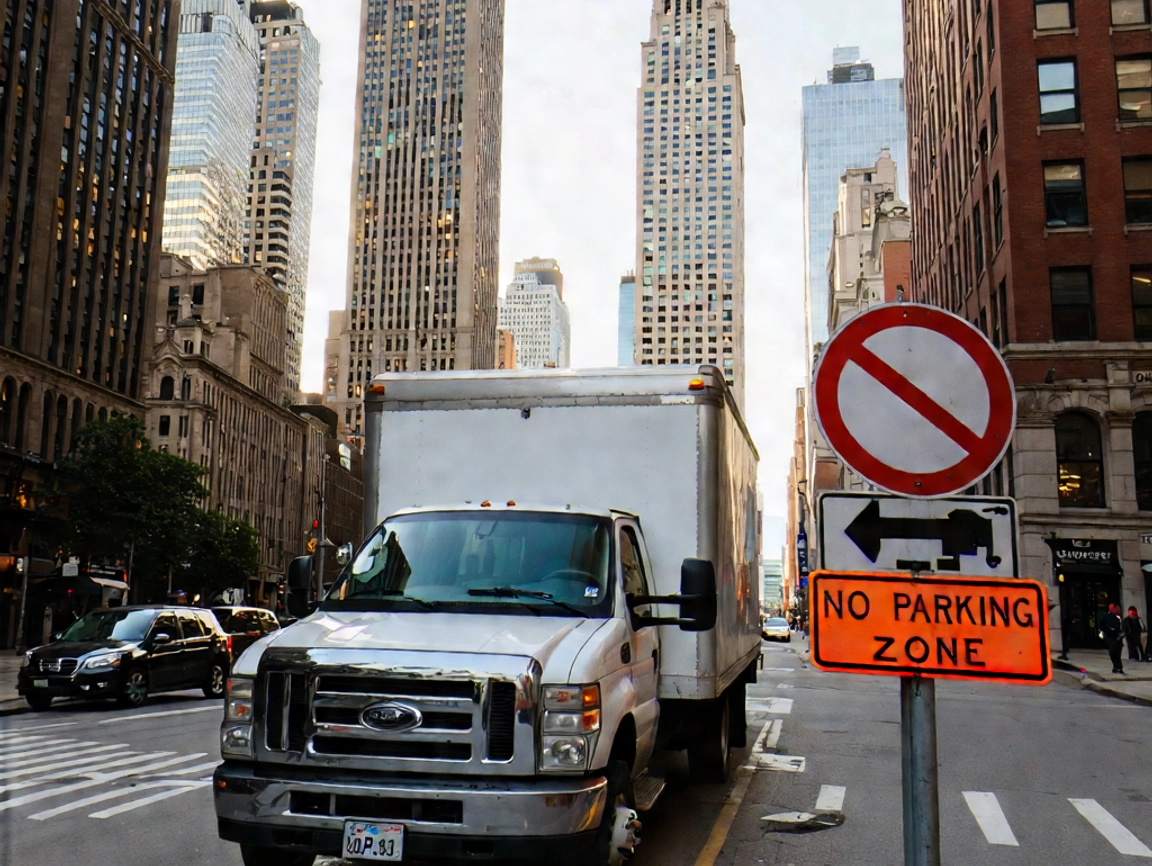Why Understanding Chicago’s Parking Regulations is Essential
Moving in Chicago can be a challenge, especially when navigating the city’s intricate parking rules. Whether you’re relocating to a high-rise downtown or a quiet residential neighborhood, understanding Chicago’s parking regulations is crucial to avoid fines, delays, and unnecessary stress. This guide will walk you through the essential parking rules, permit requirements, and best practices to ensure a smooth moving day.
Parking Permits for Moving Trucks
One of the biggest concerns for moving day is finding a place to legally park your moving truck. Chicago enforces strict parking regulations to maintain traffic flow and ensure public safety, which means that in many cases, you’ll need a special permit for your moving truck.
How to Obtain a Moving Truck Permit
If you plan to use a moving truck and need to park in a Residential Parking Zone or on a busy street, you must apply for a Temporary No Parking Permit. Here’s how:
- Apply Through the City of Chicago Website: Visit the Chicago Department of Transportation (CDOT) website to apply for a Temporary No Parking Permit.
- Provide Key Details: You will need to provide information such as the moving date, location, and the time you’ll need the space.
- Permit Fees: Fees vary depending on the duration and location. In most cases, expect to pay around $25 to $50 per day.
- Post Signs in Advance: Once you receive your permit, place the signs at least 48 hours before your moving day to notify residents and avoid conflicts.
Common Parking Restrictions in Chicago
In addition to securing a parking permit, you should be aware of common restrictions that could impact your move:
- Rush Hour Parking Bans: Many streets in downtown Chicago have restricted parking during peak traffic hours (7-9 AM and 4-6 PM). Avoid moving during these hours to prevent parking violations.
- Loading Zones: Commercial loading zones are strictly enforced. You must have the appropriate permit to use these areas, or your truck could be ticketed or towed.
- Fire Hydrants & Bus Stops: Parking too close to a fire hydrant or bus stop can result in hefty fines and possible towing.
- Street Cleaning & Snow Routes: Check for scheduled street cleaning or snow emergency routes, as parking violations on these days could lead to fines or even towing.
Parking Tips for a Smooth Move
To ensure a hassle-free moving experience, follow these tips:
Plan Ahead
- Scout Your Parking Spot: Visit your new location in advance to identify possible parking options.
- Coordinate with Your Moving Company: If using professional movers like Wolley Movers, confirm their truck size and parking needs.
Notify Your Neighbors
- Inform Residents: If you’re moving into a residential area, let neighbors know about your move to minimize disruptions.
- Post Notices: Clearly mark the no-parking zone to ensure the space is reserved for your moving truck.
Avoid Last-Minute Issues
- Double-Check Permits: Keep a copy of your permit in your truck to show if needed.
- Arrive Early: Arriving early allows you to secure your spot and avoid parking complications.
- Have a Backup Plan: In case your reserved space is occupied, have an alternative parking location in mind.
Conclusion
Understanding Chicago’s parking regulations before your move is essential for a smooth transition. By obtaining the right permits, being aware of parking restrictions, and following best practices, you can avoid fines and disruptions on moving day. At Wolley Movers, we specialize in navigating the complexities of Chicago relocations and ensuring a hassle-free experience. Contact us now for expert moving services tailored to your needs!








